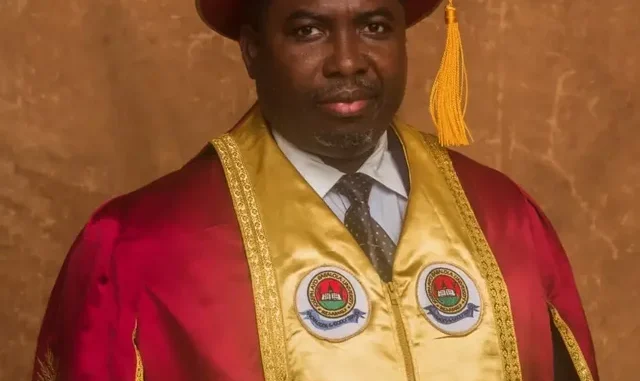
The new Chairman of the Independent National Electoral Commission (INEC), Prof. Joash Amupitan, SAN, has pledged to end Nigeria’s long-standing culture of excessive pre-election litigations, describing it as a distortion of democracy.
Speaking yesterday at the 56th Annual National Conference of the Nigerian Association of Law Teachers (NALT) held at the University of Abuja, Amupitan said one of his key priorities as INEC Chairman is to “end the courtroom warfare” that begins long before ballots are cast.
Amupitan, who assumed office barely a week ago after being sworn in by President Bola Tinubu, lamented that the commission recorded over 1,000 pre-election cases before the 2023 general elections — a situation he said was unsustainable.
According to him, genuine reform must begin with political parties adhering to their own rules and the law.
Prof. Amupitan, a Senior Advocate of Nigeria and respected legal scholar, urged the National Assembly to strengthen the country’s electoral framework to ensure credible polls.
He emphasised that sustainable democracy required both a sound legal foundation and political parties that practiced genuine internal democracy.
While acknowledging that some members of the legal profession might be uncomfortable with a reduction in election-related cases, he maintained that it was necessary to restore integrity and public confidence in Nigeria’s electoral system.
Addressing law teachers, students, and jurists at the conference themed“Law, National Development and Economic Sustainability in a Globalised World,”the INEC Chairman urged legal academics to promote ethical leadership and civic responsibility through teaching and scholarship.
In his remarks, NALT President and Dean of the Faculty of Law, University of Ibadan, Prof. John Akintayo, commended Prof. Amupitan for his reformist vision, noting that law remained the backbone of good governance and national progress.
The Conference Chairman and Dean of Law at the University of Abuja, Prof. Uwakwe Abugu, added that this year’s gathering would focus on urgent global issues — including food security, artificial intelligence, biotechnology, and legal reform — as areas where law and governance must evolve to meet modern challenges.